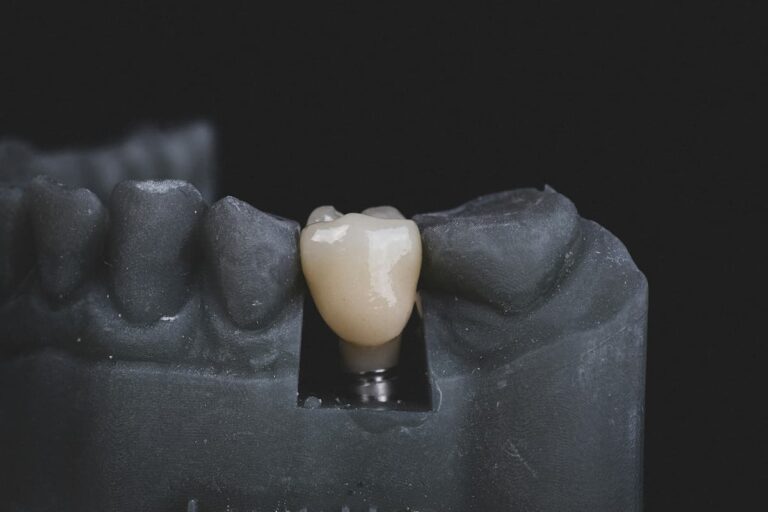Dental Implants
Inquire About Dental Implants
Losing a tooth due to injury, dental decay, or gum disease can happen.
However, in order to avoid causing problems for the adjacent teeth, and your overall dental health, it is important to replace the tooth which has been lost.
This can be done a number of ways including fixed bridges, removable partial or full dentures as well as a more recent procedure known as dental implants.
What Are Dental Implants?
Dental implants are a great advancement in dentistry as they permanently replace missing teeth in a way which no previous dental technique was able to accomplish.
Implants are anchors made out of the strongest titanium materials, that are implanted into the bone and then covered with a cap or denture. They are stronger than a natural root and will never require a root canal or filling.
An implant will help maintain the health and shape of the bone in the jaw area, and neighboring teeth do not need to be filed down to make room for it.
How Are Dental Implants Installed?
One of the most significant dental innovations in recent times, an implant is a small surgical fixture made of biocompatible metal or ceramic materials which is placed into the jawbone and functions in the same manner as the root of tooth.
In the same way that natural root supports the natural crown of your tooth, an implant once it fully integrates with the surrounding bone, provides a stable and durable foundation for a replacement tooth.
Implants often support a crown for an individual tooth, but can also be used as abutment teeth for a dental bridge, or strategically placed to help stabilize a denture.
When done successfully, an implant will result in a comfortable and natural looking tooth, thereby providing a permanent solution to a missing tooth.
Out of all of the restorative choices available today an implant comes the closest to replicating the look, feel and function of a natural tooth.
Furthermore, it is the only method of tooth replacement that does not require the involvement or preparation of the adjacent teeth.
A dental implant also stimulates bone remodeling to prevent shrinkage in areas where teeth are missing and helps to restore facial contours in areas where significant bone loss has occurred.
What Are Mini Dental Implants?
One of the dental solutions for the treatment of multiple lost or missing is a removable denture. While a removable denture is an effective prosthetic appliance for restoring one’s smile, there can be issues with its stability that affects both comfort and function.
However, one way to address this problem is with the placement of mini dental implants.
Mini dental implants are narrower in diameter than traditional dental implants. This makes them an excellent option for providing added denture stability in cases where a grafting procedure to create enough bone would otherwise be needed for the placement of full size implants.
Furthermore, mini implants can be placed in a less invasive manner, making them an easier procedure to tolerate for people with certain medical conditions.
An implant-supported denture is fitted with special housings allowing the denture to essentially snap on to the head of the mini implant thereby providing the needed denture stabilization.